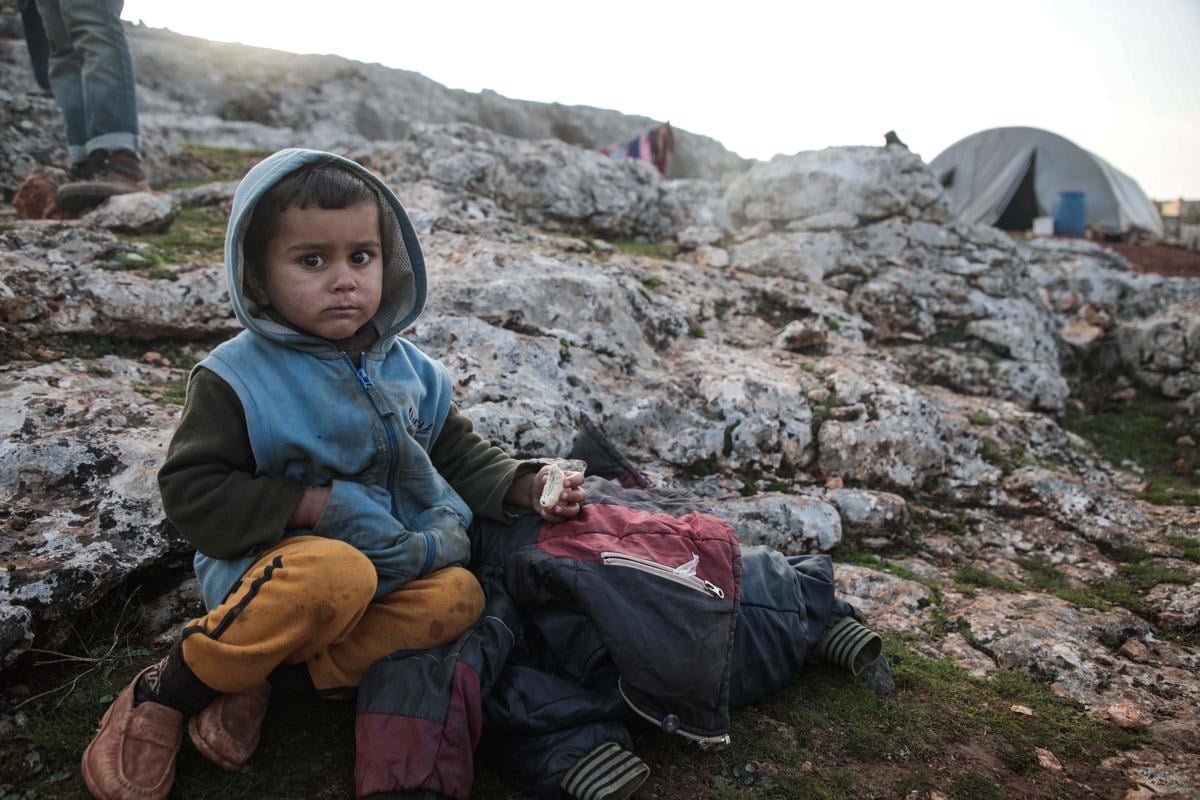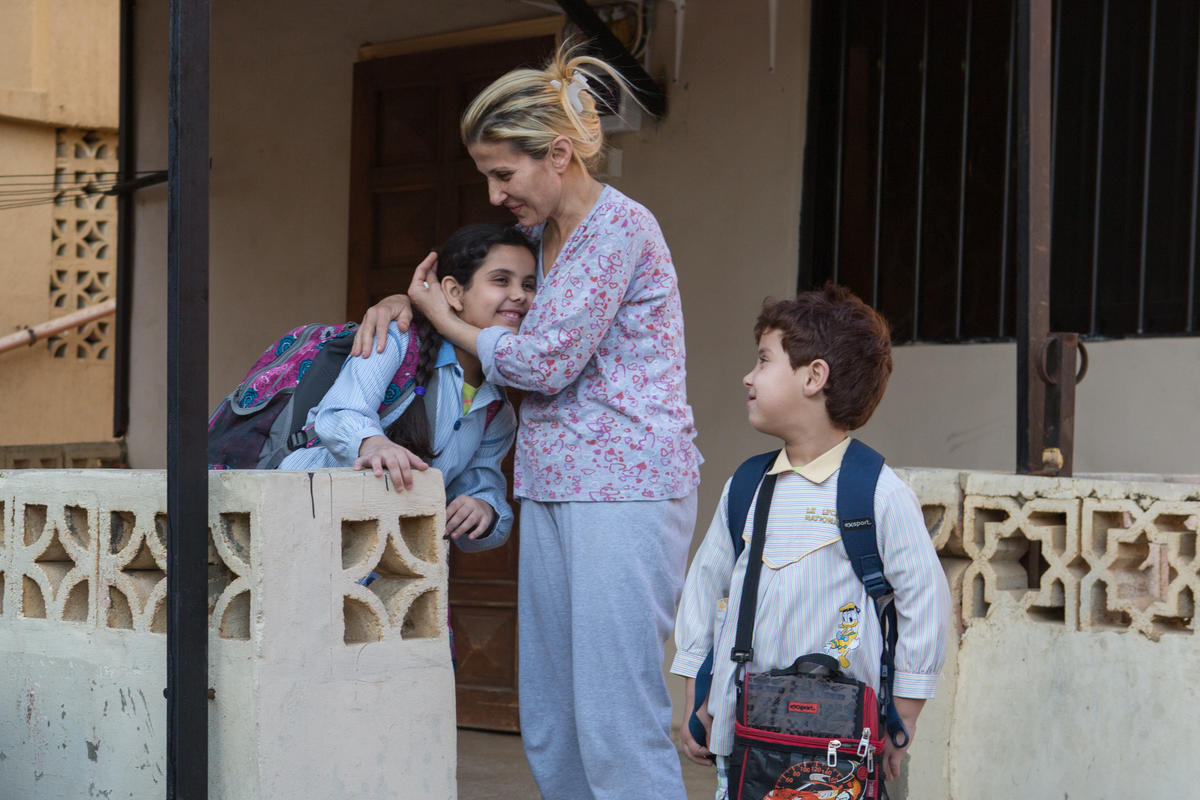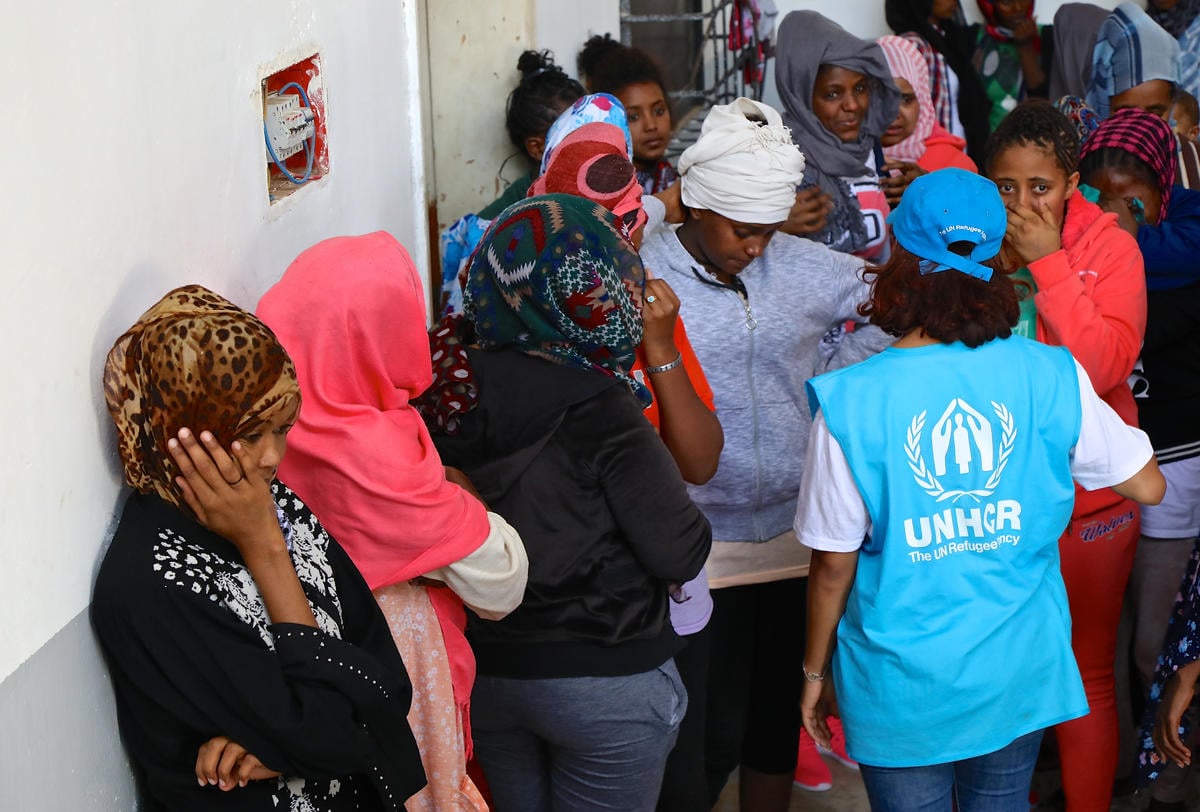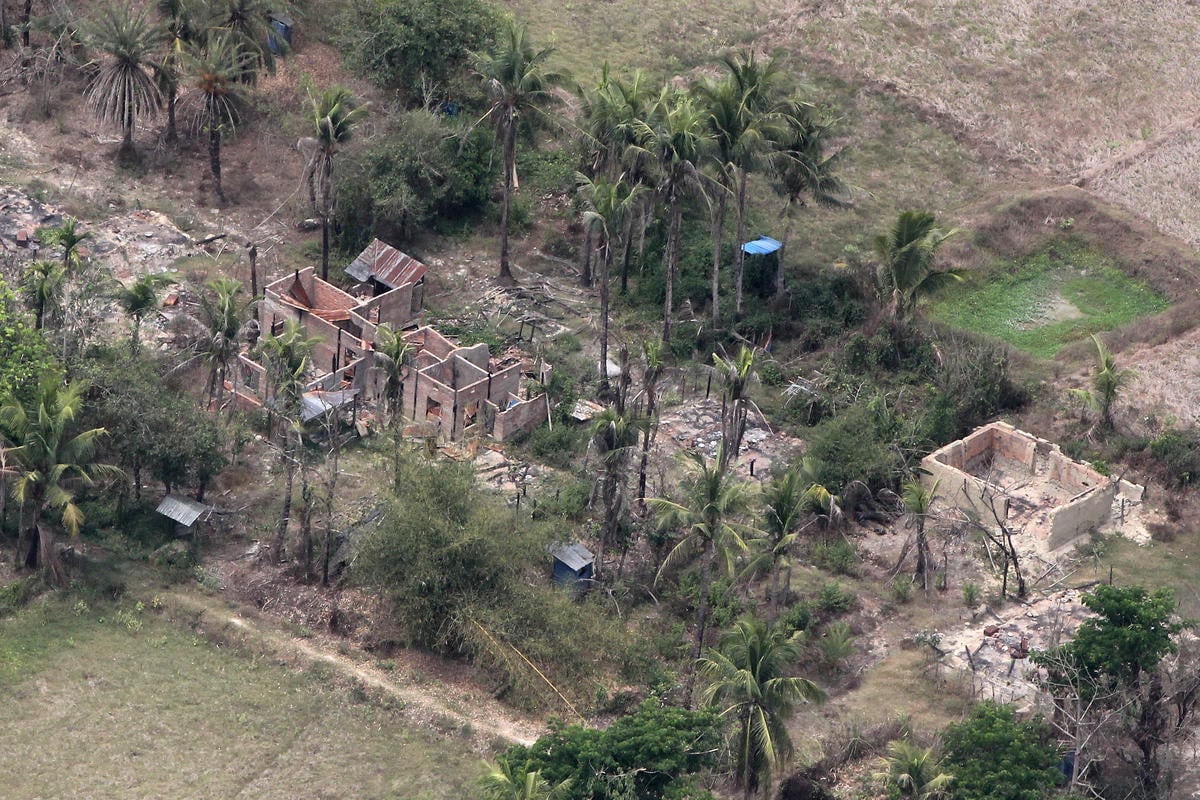Guterres urges Arab League to play greater role in UNHCR's work
Guterres urges Arab League to play greater role in UNHCR's work

CAIRO, Egypt, March 5 (UNHCR) - United Nations High Commissioner for Refugees António Guterres on Monday was wrapping up a three-day visit to Egypt during which he praised Arab states for their traditional generosity toward the displaced, urged them to take a more active role in UNHCR's work and called for international solidarity in easing the plight of Iraqis fleeing conflict in their homeland.
In a landmark opening address on Sunday to the 127th meeting of the League of Arab States' (LAS) Council of Ministers of Foreign Affairs in Cairo, Guterres noted that Arab and Islamic countries have provided refuge for millions of uprooted people, including an estimated 2 million Iraqis now in nearby countries.
He said such generosity was rooted in Arab tradition, culture and Islamic law, which include all of the norms which are today codified within the legal framework under which UNHCR carries out its international refugee mandate.
"Looking back through history, the most direct line between tradition and contemporary refugee law is found in Islam," Guterres told the meeting, which was broadcast live by all major Arab television networks.
Noting that the majority of today's refugees worldwide are Muslims, Guterres urged more involvement by the Arab and Islamic world in the discussion, formulation and implementation of international refugee policy. He also expressed concern about rising intolerance, racism and xenophobia in many parts of the world, including misperceptions about Islam that can negatively affect Muslim refugees in need of international protection.
"Even in the most developed societies, we see the re-emergence of racism, xenophobia and that brand of populism which always tries to generate confusion in public opinion between refugees, migrants and even terrorists," Guterres said. "Let us be clear: refugees are not terrorists, they are the first victims of terror.
"The same attitudes have generated widespread misperceptions about Islam, of which Muslim refugees have so frequently been the victims," he added. "This is something that we at UNHCR cannot accept. It is our duty to respond, to fight those attitudes and to bring out the truth."
Guterres invited LAS members to join UNHCR in a strategic partnership by becoming more involved in the Geneva-based refugee agency's governance bodies. He said such a partnership was even more important than financial or other forms of support. At a later press conference, he reiterated this point. "The UN refugee agency wants to be a truly global institution and for that the active participation and the voice of the Arab world is extremely important."
On the conflict in Iraq, the High Commissioner told the LAS meeting that the displacement crisis there had placed an enormous burden on host countries, particularly Jordan and Syria which together had some 1.75 million Iraqis.
"The biggest displacement crisis in the Middle East since the dramatic events of 1948 has now forced one in eight Iraqis from their homes," Guterres said. "Some 1.8 million Iraqis are currently displaced internally and up to 2 million others have fled the country. Last year alone, we estimate that nearly 500,000 Iraqis moved to other areas inside the country."
With up to 50,000 Iraqis still fleeing their homes inside the country each month, he said the impact of the crisis was felt first and foremost by the victims.
"But two neighbouring countries, Jordan and Syria, have shouldered the heaviest share of the humanitarian burden - with more than 1 million Iraqis now in Syria and up to 750,000 in Jordan," he said. "It is important to recognise the extreme generosity of Jordan and Syria, to a large extent left to face the crisis on their own through the lack of effective support from the international community. And here I have no problem recognising that UNHCR itself has not done enough."
Guterres said UNHCR was already scaling up its activities in Iraq and the surrounding region. But its humanitarian efforts were still "a drop in the ocean" and could only deal with the symptoms "as a nurse deals with the visible signs of an illness." The underlying cause and cure of that illness, he said, are clearly political. Until the political side finds a cure, however, humanitarians "must go on treating the symptoms," neighbouring countries must continue offering refuge, and the international community must do more to share the burden.
Calling for a clear, global commitment, Guterres said UNHCR was convening an international conference on the humanitarian needs of Iraqi refugees and internally displaced persons in Geneva on April 17-18.
"Our plea will not be for ourselves, but for the needs of Iraqis and neighbouring countries," he said of the Iraq conference. "The aim is to sensitise the international community to the humanitarian dimension of the situation and to seek its commitments to address these enormous - and growing - problems."
Guterres also made a special plea on behalf of thousands of non-Iraqi refugees inside Iraq, including an estimated 15,000 Palestinians. He also highlighted other difficult UNHCR operations, including Darfur, the plight of south Sudanese refugees in Egypt and Somalis crossing the Gulf of Aden to Yemen.
By Abeer Etefa in Cairo, Egypt









